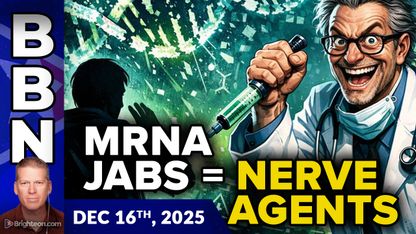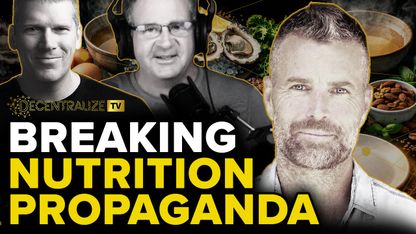
How much and which foods to store will depend on your family members, your food preferences, special health conditions, the ability to cook and prep the food and storage space.
Keep things simple while planning for short-term emergency food needs by gradually increasing quantities of some staple foods and non-perishable foods that you normally would use. (h/t to FCS.UGA.edu)
How to prepare a 3-day emergency food supply
Note that non-perishable foods are items that can be stored safely at room temperature.
If you don't have a specific survival scenario in mind, a three-day emergency preparedness kit will be useful for most emergencies. Preparing the items and storing them in one location will help you and your family get through the worst days of an emergency. (Related: Emergency food prep: Stock up on manuka honey, a must-have survival food and barter item.)
Make sure that the short-term preparedness kit includes the following survival essentials:
- Clean drinking water
- Shelf-stable food
- Personal hygiene items
- Flashlights and extra batteries
- Blankets
- Basic first aid kit
The food in your three-day supply must be non-perishable so choose items that require no refrigeration, minimal or no preparation or cooking and little or no water.
Include some of the following foods in your short-term emergency supplies kit:
- Ready-to-eat canned meats, fruits and vegetables
- Canned juices, milk and soup (If you have powdered items, store extra water for food prep.)
- Staples (Like sugar, salt and pepper)
- High-energy foods (Such as crackers, peanut butter, jelly, granola bars and trail mix)
- Foods for babies, the elderly, or people on special diets (For example, diabetics or those with food allergies.)
- Comfort foods (Such as candies, cookies, instant coffee and tea bags)
- Vitamins
How to prepare a 2-week food supply
If you live in a location where the power can be off for extended periods, a two-week supply is also a good idea. The same suggestions for a three-day supply will also work for a two-week supply.
However, for two weeks or more of emergency eating, pay more attention to your family's nutrition needs. Plan food supplies so you eat at least one well-balanced meal a day.
To build your two-week emergency supply, start to slowly increase the amount of basic foods you normally keep on your shelves.
You may even already have a two-week supply of most staples on hand if you check your kitchen and make a written plan. Keep the supply fresh by rotating all non-perishable staple items in general storage at least once or twice a year.
If you have any items in the refrigerator and freezer, use them up at the beginning of the emergency to prevent spoilage.
Where to get lab-verified food supplies for your stockpile
To help you get started on your journey to preparedness, the Health Ranger Store offers the Ranger Bucket Organic Emergency Storable Food Supply, the world's first emergency food supply that's certified organic and laboratory-verified.
The buckets contain an assortment of organic beans, grains and nuts. All the food items in the Ranger Bucket Organic Emergency Storable Food Supply are organic, non-GMO, laboratory-tested for heavy metals and free of chemical ingredients such as MSG or preservatives.
All these products can be stored for up to 10-15 years, depending on storage conditions.
You will also need seasoning when SHTF and you can't go wrong with pink Himalayan salt. This type of salt can contain up to 84 different beneficial trace minerals without the harmful additives often found in regular table salt.
Our Health Ranger Select Pink Himalayan Salt contains a variety of electrolytes and trace minerals that are usually stripped away from regular table salt. It is mined from ancient sea salt deposits located deep inside the Himalayan Mountains using the traditional room and pillar mining method.
The mined salt crystals are thoroughly inspected and sorted to ensure quality and purity.
You will also need fruits, so stock up on organic blueberries, which are one of the most nutritious and antioxidant-rich fruits in the world.
Loaded with a variety of essential nutrients, Health Ranger Select Freeze-Dried Organic Whole Blueberries are an excellent healthy snack you can enjoy all year round.
They have been carefully freeze-dried to preserve the taste, texture and nutrients of fresh produce without the use of harmful chemical preservatives. You can eat them directly or reconstitute them by adding some water.
Go to Health Ranger Store and Brighteon Store to find more prepping products for your survival needs. You can also visit Foodsupply.news to read up on other clean foods for your stockpile.
Watch this clip to learn how Organic Whole Blueberries can help support your optimal well-being.
This video is from the Health Ranger Store channel on Brighteon.com.
More related stories:
DARK SECRETS: Your dark chocolate may contain lead and cadmium.
Avoid harmful chemicals like glyphosate in food by ALWAYS choosing ORGANIC.
Sources include:
Please contact us for more information.






















